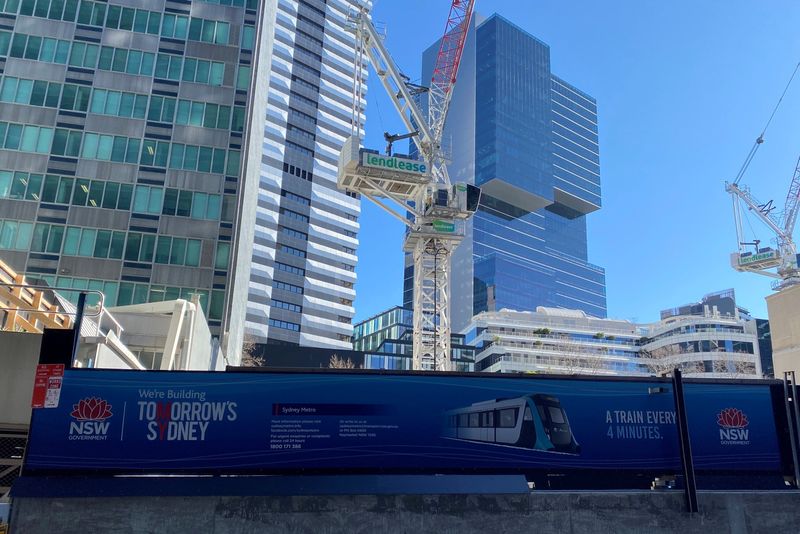Australia business activity booms in July, costs surge
2022.08.09 05:05

FILE PHOTO: View of a construction site for a train station on the Sydney Metro, Australia July 22, 2021. REUTERS/Sam Holmes
By Wayne Cole
SYDNEY (Reuters) – A measure of Australian business confidence rebounded in July as sales and profits held up surprisingly well in the face of rising interest rates and high inflation, though firms also reported record costs amid supply constraints.
Tuesday’s survey from National Australia Bank (OTC:NABZY) Ltd (NAB) showed its index of business conditions climbed 6 points to +20 in July, well above its long-run average.
Its measure of confidence bounced 5 points to +7, reversing June’s decline and leaving it just above the long-run average.
“The strength in conditions remained broad-based across states and industries, with a notable pickup in the construction sector,” said NAB group chief economist Alan Oster.
“Overall, the survey suggests that despite global and domestic economic headwinds, demand has remained strong – and inflationary pressure continues to build suggesting that inflation is yet to peak.”
The survey’s measure of purchase costs climbed to a record high of 5.4%, while labour costs rose 4.6% at a quarterly pace. Growth in retail prices picked up to 3.3%, with product prices up 2.7%.
Surging inflation has led the Reserve Bank of Australia (RBA) to hike four times since early May, lifting rates by 175 basis points to 1.85% and warning of yet more ahead.
Markets are leaning toward another 50 basis points in September and rates as high as 3.25% by year end.
That hawkish outlook has soured the consumer mood, with two surveys out on Tuesday showing sharp falls in confidence amid much pessimism on the economic outlook.
Yet NAB’s survey continues to show resilience in actual demand, with its measure of sales jumping 8 points to an historically high +27 in July.
Profitability rose 4 points to +17 and the employment index gained 6 points to +17, a strong reading that suggested the jobless rate could drop even further having already fallen to a 48-year low of 3.5%.
Firms also looked to be running flat out with capacity utilisation surging to a record 86.7%, from 84.9% in June.








